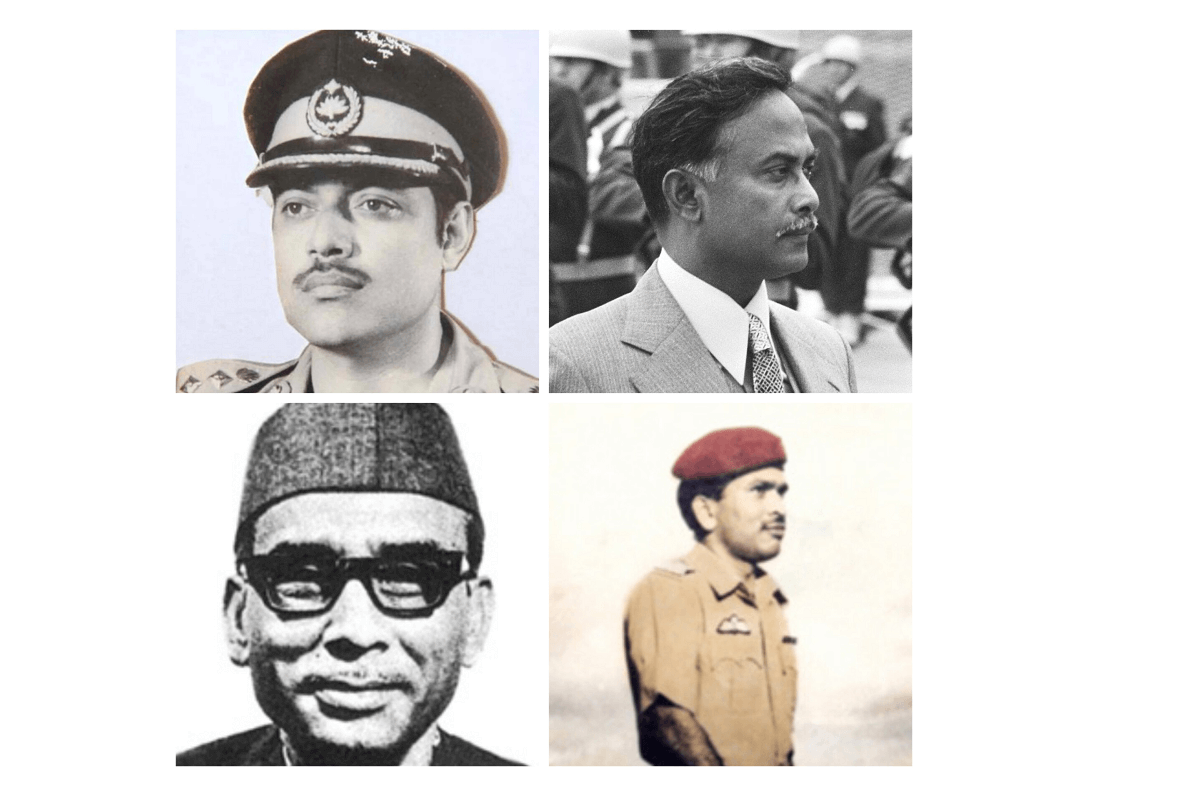Bangladesh's Historic Political Crossroads on November 7, 1975
Roman Uddin | 07 November 2023
The political landscape of Bangladesh witnessed a dramatic turn on November 7, 1975, only a few months after the tragic events of August 15. This date marks a significant chapter in the nation's history, marked by coups, assassinations, and shifting alliances that reshaped the course of politics in Bangladesh. The events of that fateful week were instrumental in shaping the nation's future, and they continue to be a subject of intense debate and interpretation.
Following the assassination of Bangabandhu Sheikh Mujibur Rahman, Khondaker Mostaq Ahmed assumed power as the President of Bangladesh. However, his rule was short-lived, lasting only 81 days. Moshtaq was ousted from power on November 6 following a bloodless coup on November 3, led by Brigadier Khaled Mosharraf and Colonel Shafat Jamil among others. General Ziaur Rahman, a key figure in Bangladesh's military, was placed under house arrest, while four national leaders, former President Syed Nazrul Islam, former prime ministers Tajuddin Ahmed and Muhammad Mansur Ali, and President of Awami League Abul Hasnat Muhammad Qamaruzzaman, met a tragic fate in jail on November 3 during this change of power.
The events leading up to the coup were marked by a nationwide atmosphere of uncertainty, with Khaled Mosharraf being portrayed as 'India's broker' within the cantonment. Colonel Taher, a retired army officer and a socialist, emerged as a pivotal figure, attempting to save Major Zia from house arrest. The decision for a bloodless coup by Khaled Mosharraf extended the time frame for Moshtaq's overthrow, providing Mostaq with an opportunity to recognize that Khaled Mosharraf would likely become the military chief. Mostaq's preemptive action to eliminate the four national leaders can be seen in this context. He killed the four national leaders by assuming that one of them would be the president after him, and he wanted to eliminate that possibility.
Simultaneously, Colonel Taher, who opposed class divisions in the military, gained popularity among soldiers and incited a mutiny within the cantonment.
On November 7, 1975, Major Ziaur Rahman was released from house arrest, and a counter-coup led to the assassination of Brigadier Khaled Mosharraf, effectively bringing Zia to power. Colonel Taher had hoped that Zia would adopt a socialist approach to governance, but Zia's actions upon assuming power did not align with Taher's vision. Instead, Zia implemented strict measures to suppress socialist-minded soldiers.
The post-coup period saw debates and arguments between the Jatiya Samajtantrik Dal (Jasad) and the Bangladesh Nationalist Party (BNP). Some believed that Jasad and Taher alone lacked the capacity to organize a coup during the post-war period. Jasad aimed to forge a new path for the country with General Zia's cooperation. Conversely, others contended that General Zia utilized Colonel Taher to escape captivity and subsequently betrayed Jasad.
In summary, both sides appeared to view each other as a means to attain power, but in the course of events, Ziaur Rahman prevailed, maintained his grip on power, and Taher's and Jasad's aspirations dwindled. Moreover, there is a perception that Khaled Mosharraf's failed coup attempt thwarted any prospect of the Bangladesh Awami League returning to power, as he was closely associated with Bangabandhu.
The series of events from November 3 to 7, 1975, brought about profound changes in Bangladesh's political landscape. Mostaq's regime came to an end, Khaled Mosharraf's coup against the murderers of Bangabandhu Sheikh Mujibur Rahman failed, Colonel Taher's dream of establishing a socialist state proved unsuccessful, and left-wing politics, epitomized by Jasad, practically collapsed. Ziaur Rahman's ascent to power ushered in a new era of politics, marked by the rise of the Bangladesh Nationalist Party (BNP).
Given the transformative nature of these events, it is unsurprising that different political parties have varying interpretations of November 7. Jasad commemorates it as "Sepoy Janata Revolution Day," BNP observes it as "National Revolution and Solidarity Day," and Bangladesh Awami League marks it as "Freedom Fighter-Soldier Killing Day."
In retrospect, November 7, 1975, is a day that continues to be analyzed and interpreted through the diverse lenses of these political factions, reflecting the complexity and intricacy of Bangladesh's political history.
Roman Uddin, Research Associate and Youth Outreach Program Coordinator at Centre for Governance Studies.
